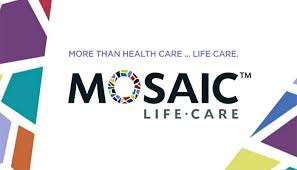Blog
03 Jul Warrior’s Best Friend Foundation Receives $12,000 Grant from the Ford Foundation
Warrior’s Best Friend Foundation recently received a grant for $12,000 from the Ford Foundation to support the direct cost of training and placing two facility dogs with the United Service Organization Chapters to support the Military and Family Life Counseling (MFLAC) program.03 Jul Wichita Children’s Home Receives $31,277 Grant from the Kansas State Human Trafficking Victims’ Assistance Fund
Wichita Children’s Home (WCH) was recently awarded a $31,277 grant from the State Human Trafficking Victims’ Assistance Fund (Kansas) to focus on supporting the depth and breadth of Wichita Children’s Home’s survivor aftercare services for victims of human trafficking (HT). Our primary goal is to empower these young women to heal and achieve self-actualization.02 Jul Children’s Center for the Visually Impaired (CCVI) Receives $75,000 Grant from the Sarli Family Foundation
Children’s Center for the Visually Impaired (CCVI) recently received a grant for $75,000 from the Sarli Family Foundation to sustain core services in 2022. This support will help CCVI meet the ever-present needs of children with visual impairments while recruiting and retaining the highly specialized staff required to deliver services. General support allows CCVI to focus our resources on key services to achieve the best possible outcomes for the children we serve, especially during this difficult time. CCVI teachers, therapists, and specialists will provide services for 275 infants and children in 2022 through the following core program areas:- The Early Intervention Program (EIP) offers an individualized educational/therapy program for infants and toddlers, birth through age three, who have significant visual impairments that impact learning. It provides home-based instruction, therapies, and center-based evaluations of developmental progress.
- The Preschool/Kindergarten Program’s six classrooms combine curriculum with specialized therapies and activities to enhance basic skills while preparing children for inclusion in public or private elementary schools.
- Outreach Services are provided for school-age children attending public, private, charter, parochial, and state schools that do not have certified teachers of the visually impaired and/or orientation and mobility instructors. Services include assessment and monitoring of functional visual development and training on specialized classroom equipment.
- Parent/Family Support Programs offer educational and training opportunities for all families, including orientation and mobility training, health care navigation, and other workshops and social gatherings.
02 Jul Big Brothers Big Sisters of Southwestern Illinois Receives $20,000 from the Roblee Foundation
Big Brothers Big Sisters of Southwestern Illinois (BBBSIL) recently received a grant for $20,000 from the Joseph H. & Florence A. Roblee Foundation to produce quality, lasting 1:1 mentoring relationships that keep kids in school, out of trouble, and on a path to post-graduation success. Funding will support the identification and recruitment of volunteers, enrollment and interviews of new youth and their families, and regular follow-ups with participants.02 Jul Integrated Behavioral Technologies, Inc. (IBT) Receives $25,000 from the Dwane L. and Velma Lunt Wallace Charitable Foundation
Integrated Behavioral Technologies, Inc. (IBT) was recently awarded a $25,000 grant from the Dwane L. and Velma Lunt Wallace Charitable Foundation to replace the fire suppression hood and venting in the kitchen at The K.I.D.S. Place early childhood center. The Wallace Foundation has been a dedicated supporter of IBT's mission to support diverse learners. (Read more about their past giving here: Wallace Foundation Funds Playground Accessibility).01 Jul Funding Alert! Training Opportunities for Nursing
Health Resources and Services Administration Attention institutions of higher education, community-based healthcare organizations, elected officials, and school districts! The Health Resources and Services Administration (HRSA) has various upcoming opportunities for healthcare professional training programs. While the specific goals of these programs differ, the overarching goal is to provide equitable health care to people who are geographically isolated and economically or medically vulnerable. This announcement features three forecasted opportunities specifically focused on nursing for rural and underserved communities. Upcoming posts throughout July will feature opportunities for training related to nursing, residency, secondary education outreach, and substance abuse. About the agency HRSA programs provide equitable health care to people who are geographically isolated and economically or medically vulnerable. This includes programs that deliver health services to people with HIV, pregnant people, mothers and their families, those with low incomes, residents of rural areas, American Indians and Alaska Natives, and those otherwise unable to access high-quality health care. HRSA programs also support health infrastructure, including through training of health professionals and distributing them to areas where they are needed most, providing financial support to health care providers, and advancing telehealth. In addition, HRSA oversees programs for providing discounts on prescription drugs to safety net providers, facilitating organ, bone marrow, and cord blood transplantation, compensating individuals injured by vaccination, and maintaining data on health care malpractice payments. As part of a series, funding Friday will highlight HRSA opportunities focused on training for the healthcare workforce, both available and forecasted. This week starts with training opportunities for nursing, managed by the Division of Nursing and Public Health, featuring the following forecasted opportunities currently projected with January 2023 deadlines:- Nurse Faculty Loan Program (NFLP), focuses on increasing the number of qualified nursing faculty nationwide by funding accredited schools of nursing to establish and operate a student loan fund for students enrolled in advanced education nursing degree programs and who are committed to become nurse faculty.
- Advanced Nursing Education Workforce (ANEW), supports academic clinical partnerships that educate and graduate primary care Nurse Practitioners, clinical nurse specialists, and nurse midwives who are academically and clinically prepared for transition to practice in rural and underserved communities. The goal of the program is to increase access to needed primary medical care for these populations.
- Nurse Anesthetist Traineeships (NAT), aims to increase the number of new Certified Registered Nurse Anesthetists nationwide and to prepare them to provide care and practice in rural and underserved communities.






